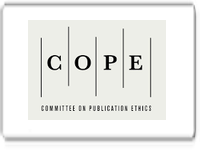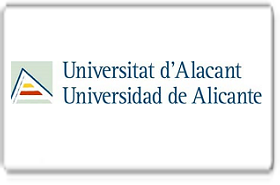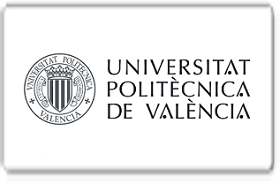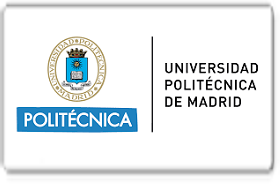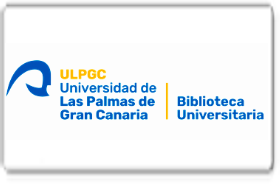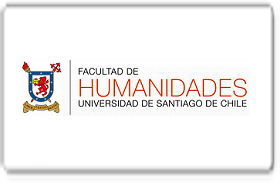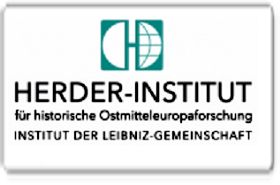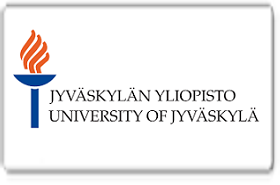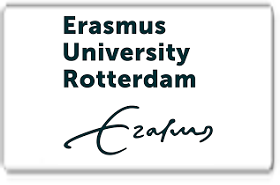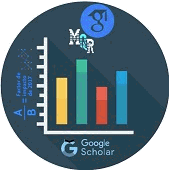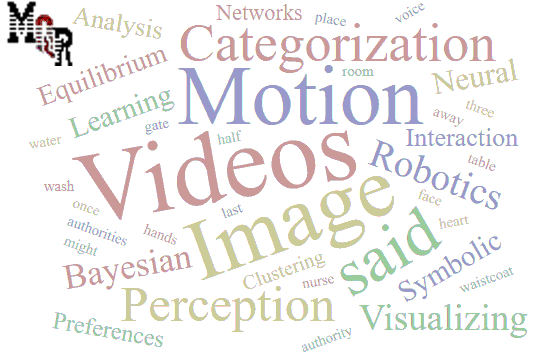El modelo de trabajo híbrido y su impacto financiero en el desempeño laboral. Caso personal administrativo de Sociedad Industrial Ganadera El Ordeño y CORPABE al 2023
DOI:
https://doi.org/10.56048/MQR20225.8.3.2024.1735-1752Palabras clave:
Trabajo híbrido; desempeño laboral; flexibilidad; satisfacción del empleado; productividadResumen
Esta investigación analiza el impacto del modelo de trabajo híbrido en el desempeño laboral y financiero del personal administrativo de la Sociedad Industrial Ganadera El Ordeño y CORPABE durante el año 2023. Con un enfoque cuantitativo no experimental de correlación causal transversal, se aplicó encuestas a 41 empleados, basado en el instrumento de Chatterjee et al. (2022), para medir la flexibilidad, satisfacción y productividad del lugar de trabajo y de horarios. La confiabilidad del instrumento, indica una alta consistencia interna (0,906). El análisis PLS-SEM revela que la flexibilidad del lugar de trabajo influye positivamente en la flexibilidad horaria (coeficiente de 0,868) y en la productividad (coeficiente de 0,793), pero no en la satisfacción de los empleados (coeficiente de -0,006). De manera similar, la flexibilidad horaria muestra un efecto positivo significativo en la satisfacción de los empleados (coeficiente de 0,688) y una influencia positiva, aunque débil, en la productividad (coeficiente de 0,079). Estos hallazgos sugieren que una mayor flexibilidad en el lugar de trabajo mejora la productividad, mientras que la flexibilidad horaria contribuye a la satisfacción laboral.
Descargas
Métricas
Cited
DOI: 10.56048![]()
Citas
Alkoud, S., & Qatamin, L. (2023). Hybrid Work in International Business: Challenges and Opportunities in light of Dual Factor Theory. International Journal of Academic Research in Business and Social Sciences, 13(7). https://doi.org/10.6007/IJARBSS/v13-i7/17314
Bloom, N., Liang, J., Roberts, J., & Ying, Z. J. (2015). Does Working from Home Work? Evidence from a Chinese Experiment *. The Quarterly Journal of Economics, 130(1), 165–218. https://doi.org/10.1093/qje/qju032
Bobadilla Alvarez, M. (2008). Metodología de la Investigación Científica. https://www.researchgate.net/publication/341639068
Brown, K., Waterhouse, J., & Flynn, C. (2003). Change management practices. International Journal of Public Sector Management, 16(3), 230–241. https://doi.org/10.1108/09513550310472311
Cernikovaite, M., & Karazijiene, Ž. (2023). Hybrid Communication as a Prospect for Organisation Development. Review of Applied Socio-Economic Research, 25(1), 5–19. https://doi.org/10.54609/reaser.v25i1.286
Chatterjee, S., Chaudhuri, R., & Vrontis, D. (2022). Does remote work flexibility enhance organization performance? Moderating role of organization policy and top management support. Journal of Business Research, 139, 1501–1512. https://doi.org/10.1016/j.jbusres.2021.10.069
Cortés León, C. (2023). Espacios de trabajo híbrido: liderazgo y gestión de equipos. https://doi.org/10.56269/CCL20230216
Countouris, N., De Stefano, V., Piasna, A., & Rainone, S. (2023). The future of remote work.
Creswell, J. W. (2014). Research design: Qualitative, quantitative, and mixed methods approaches (4a edición).
Cronbach, L. J. (1951). Coefficient alpha and the internal structure of tests. Psychometrika, 16(3), 297–334. https://doi.org/10.1007/BF02310555
Djamba, Y. K., & Neuman, W. L. (2002). Social Research Methods: Qualitative and Quantitative Approaches. Teaching Sociology, 30(3), 380. https://doi.org/10.2307/3211488
Dr. Reena (Mahapatra) Lenka. (2021). “Unique Hybrid Work model- The future of remote work.” PalArch’s Journal of Archaeology of Egypt / Egyptology, 18(7), 2687–2697. https://archives.palarch.nl/index.php/jae/article/view/8694
Felstead, A., & Henseke, G. (2017). Assessing the growth of remote working and its consequences for effort, well‐being and work‐life balance. New Technology, Work and Employment, 32(3), 195–212. https://doi.org/10.1111/ntwe.12097
Goetz, N., & Wald, A. (2022). Similar but different? The influence of job satisfaction, organizational commitment and person-job fit on individual performance in the continuum between permanent and temporary organizations. International Journal of Project Management, 40(3), 251–261. https://doi.org/10.1016/j.ijproman.2022.03.001
Hair, J., Hult, G. T. M., Ringle, C., & Sarstedt, M. (2022). A Primer on Partial Least Squares Structural Equation Modeling (PLS-SEM).
Hernández Sampieri, R., Fernández Collado, C., María del Pilar Baptista Lucio, D., Méndez Valencia, S., & Mendoza Torres, C. P. (2014). Metodología de la investigación (Sexta).
Jaqua, T. (2022). A Case for a Remote Workforce: Why the Return to the Office is not Working. International Journal of Academic Research in Accounting, Finance and Management Sciences, 12(3). https://doi.org/10.6007/IJARAFMS/v12-i3/14409
Josiah-Hart, V., & Dr. Gift, O. W. (2023). Hybrid work location models and job performance of oil and gas firms in rivers state. International Journal of Progressive Research in Engineering Management and Science (IJPREMS), 03(02), 4–10.
Judge, T. A., Thoresen, C. J., Bono, J. E., & Patton, G. K. (2001). The job satisfaction–job performance relationship: A qualitative and quantitative review. Psychological Bulletin, 127(3), 376–407. https://doi.org/10.1037/0033-2909.127.3.376
Marchegiani, L., & Arcese, G. (2018). Collaborative Spaces and Coworking as Hybrid Workspaces: Friends or Foes of Learning and Innovation? In Learning and Innovation in Hybrid Organizations (pp. 51–71). Springer International Publishing. https://doi.org/10.1007/978-3-319-62467-9_4
McKinsey & Company. (2021). The future of work after COVID-19. www.mckinsey.com/mgi.
Mićić, L., & Mastilo, Z. (2022). Digital Workplace Transformation: Innovative Approach After Covid-19 Pandemic. ECONOMICS, 10(2), 63–76. https://doi.org/10.2478/eoik-2022-0014
Microsoft. (2021). The Next Great Disruption Is Hybrid Work-Are We Ready?
N. Chellam, Dr. D. D. (2022). A Causal Study On Hybrid Model And Its Impact On Employee Job Performance. Journal of Pharmaceutical Negative Results, 866–873. https://doi.org/10.47750/pnr.2022.13.S09.104
Nauzeer, S., & Jaunky, V. C. (2021). A Meta-Analysis of the Combined Effects of Motivation, Learning and Personality Traits on Academic Performance. Pedagogical Research, 6(3), em0097. https://doi.org/10.29333/pr/10963
Nijp, H. H., Beckers, D. G., Geurts, S. A., Tucker, P., & Kompier, M. A. (2012). Systematic review on the association between employee worktime control and work–non-work balance, health and well-being, and job-related outcomes. Scandinavian Journal of Work, Environment & Health, 38(4), 299–313. https://doi.org/10.5271/sjweh.3307
Odena, M. B. (2022). Trabajadoras y trabajadores informáticos en modo remoto. Impactos psicológicos y brechas de género. Memorias de Las JAIIO, 8(14), 17–30. https://ojs.sadio.org.ar/index.php/JAIIO/article/view/322
Parajuli, S. K. (2023). Remote and Flexible work: A Systematic Review. Nepal Journal of Multidisciplinary Research, 6(2), 131–144. https://doi.org/10.3126/njmr.v6i2.57656
Pinho, I., Rego, A., & Pina e Cunha, M. (2012). Improving knowledge management processes: a hybrid positive approach. Journal of Knowledge Management, 16(2), 215–242. https://doi.org/10.1108/13673271211218834
Santillan, E. G., Santillan, E. T., Doringo, J. B., Pigao, K. J. F., & Mesina, V. F. C. (2023). Assessing the Impact of a Hybrid Work Model on Job Execution, Work-Life Balance, and Employee Satisfaction in a Technology Company. Journal of Business and Management Studies, 5(6), 13–38. https://doi.org/10.32996/jbms.2023.5.6.2
Wang, B., Liu, Y., Qian, J., & Parker, S. K. (2021). Achieving Effective Remote Working During the COVID‐19 Pandemic: A Work Design Perspective. Applied Psychology, 70(1), 16–59. https://doi.org/10.1111/apps.12290
Publicado
Cómo citar
Número
Sección
Categorías
Licencia

Esta obra está bajo una licencia internacional Creative Commons Atribución 4.0.
Los autores se comprometen a respetar la información académica de otros autores, y a ceder los derechos de autor a la Revista MQRInvestigar, para que el artículo pueda ser editado, publicado y distribuido. El contenido de los artículos científicos y de las publicaciones que aparecen en la revista es responsabilidad exclusiva de sus autores. La distribución de los artículos publicados se realiza bajo una licencia 


















